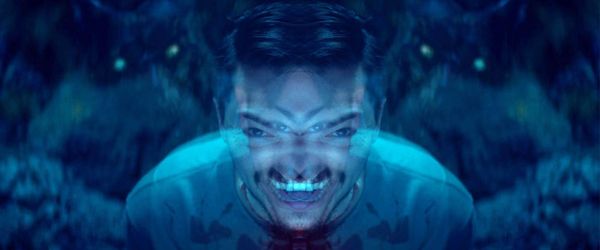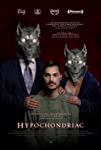Eye For Film >> Movies >> Hypochondriac (2022) Film Review
Hypochondriac
Reviewed by: Jennie Kermode

Each year, the Fantasia International Film Festival is full of stories about supernatural horrors and fantasy worlds, but sometimes the most horrific experiences occur in real life, especially when people become overwhelmed and find it difficult to tell reality and fantasy apart. Addison Heimann’s directorial début puts its cards on the table at the outset with the legend ‘based on a real breakdown’. The film utilises several key elements from Heimann’s own life, but its narrative is slightly different and its characters fictional, so there’s no reduction in tension as a result.
The film opens when its hero, Will (played for most of its duration by Zach Villa) is just a boy. His mother (Marlene Forte) spirits him away to a motel one night, distraught about the idea that people are tracking them, and at first it seems as if they might be in real danger, perhaps from an abusive family member, but in fact the threat lies elsewhere. Marlene is suffering from serious mental illness, and when he paranoia is at its most severe, she tries to strangle Will. It’s a moment he will never forget.
Fast forward 15 years. Will is now a grown adult, seemingly happy and well adjusted, enjoying his job as a potter and his relationship with doting partner Luke (Devon Graye). He has told Luke that his mother is dead; it seemed easier than explaining why he wants nothing to do with her. When she gets back in touch out of the blue, however, it precipitates a crisis. Will begins to have panic attacks and other experiences which he doesn’t understand. Though reluctant at first, he gradually opens up to doctors, who tell him that it’s probably stress. Rest. Exercise more. These troubling symptoms will probably go away by themselves. When that doesn’t happen, two frightening possibilities present themselves. He could be falling apart as he begins to process old trauma, or he could have inherited his mother’s illness himself.
The struggle which follows is, in places, difficult to watch, especially for viewers who have been affected by such issues in their own lives, so Heimann sensibly leavens it with humour. He has a keen eye for the ridiculousness of Will’s attempts to navigate the medical system, and of certain aspects of the breakdown itself, without ever diminishing the seriousness of the situation. This approach also enables him to acknowledge moments of real absurdity, such as when Will’s mother decides to send him a large cardboard box full of empty DVD covers. It also lets him pay tribute to some of his cinematic inspirations. The wolf which Will hallucinates – which seems to embody his trauma – bears a distinct resemblance to the giant rabbit in Donnie Darko, and there is a scene with a potter’s wheel which puts a hilarious spin on Ghost.
Importantly, despite Will’s initial stance, which will resemble that of many viewers, this is not a film about cures. There is no suggestion that Will’s problems will easily go away, or that his life can return to the way it was before. What he needs to do is adjust to his new reality – preferably before he destroys his relationship, harms the people around him or does further harm to himself. This makes for a much more interesting character arc and takes the film well out of disease of the week territory. It also serves as a reminder of all the people around us living with trauma or mental illness, and invites us to show a little more consideration, inspiring sympathy not by preaching but by provoking both laughter and tears.
A bold and very personal piece of work, this is deserving of a wide audience.
Reviewed on: 23 Jul 2022















